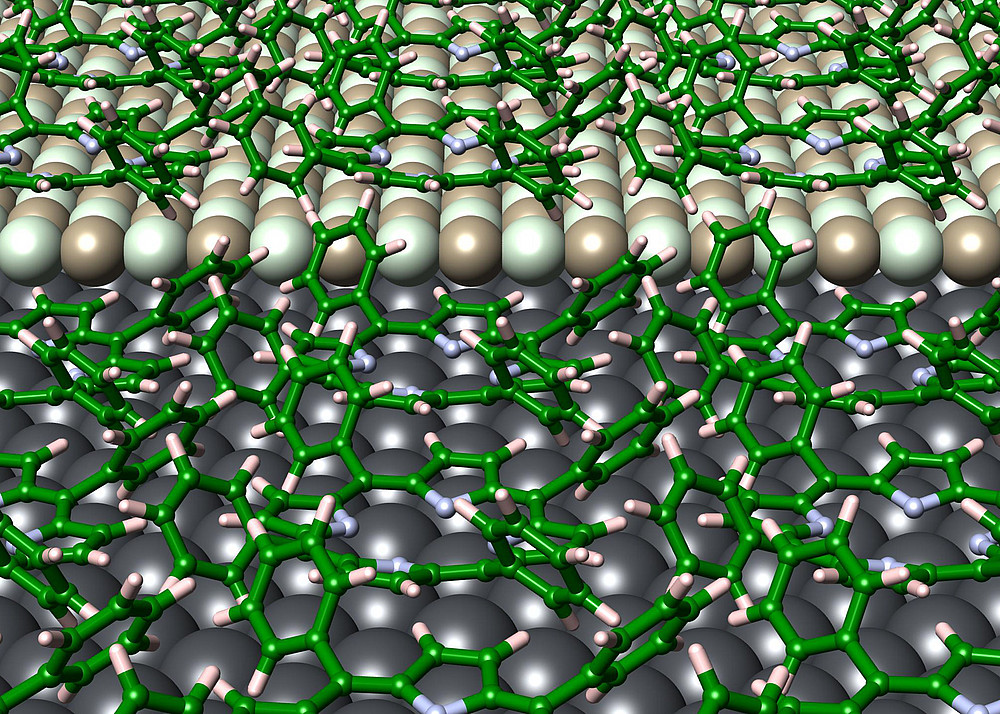Organic Monolayers
From self-assembly to control of charge transfer
The interaction with a substrate can significantly influence the electronic, magnetic, geometric and chemical properties of adsorbed molecules. These properties can be controlled and tuned by specific choice of substrates and chemical and electronic variation of interfacial properties. In our research on organic monolayers, we focus primarily on the interaction of large, organic semiconductor molecules on single-crystalline metal and metal oxide surfaces. Specific properties such as molecular self-assembly, orientational transitions, charge transfer phenomena and structural transformations are probed with a combination of scanning tunneling microscopy (STM) and photoemission orbital tomography, supported by density functional calculations.
